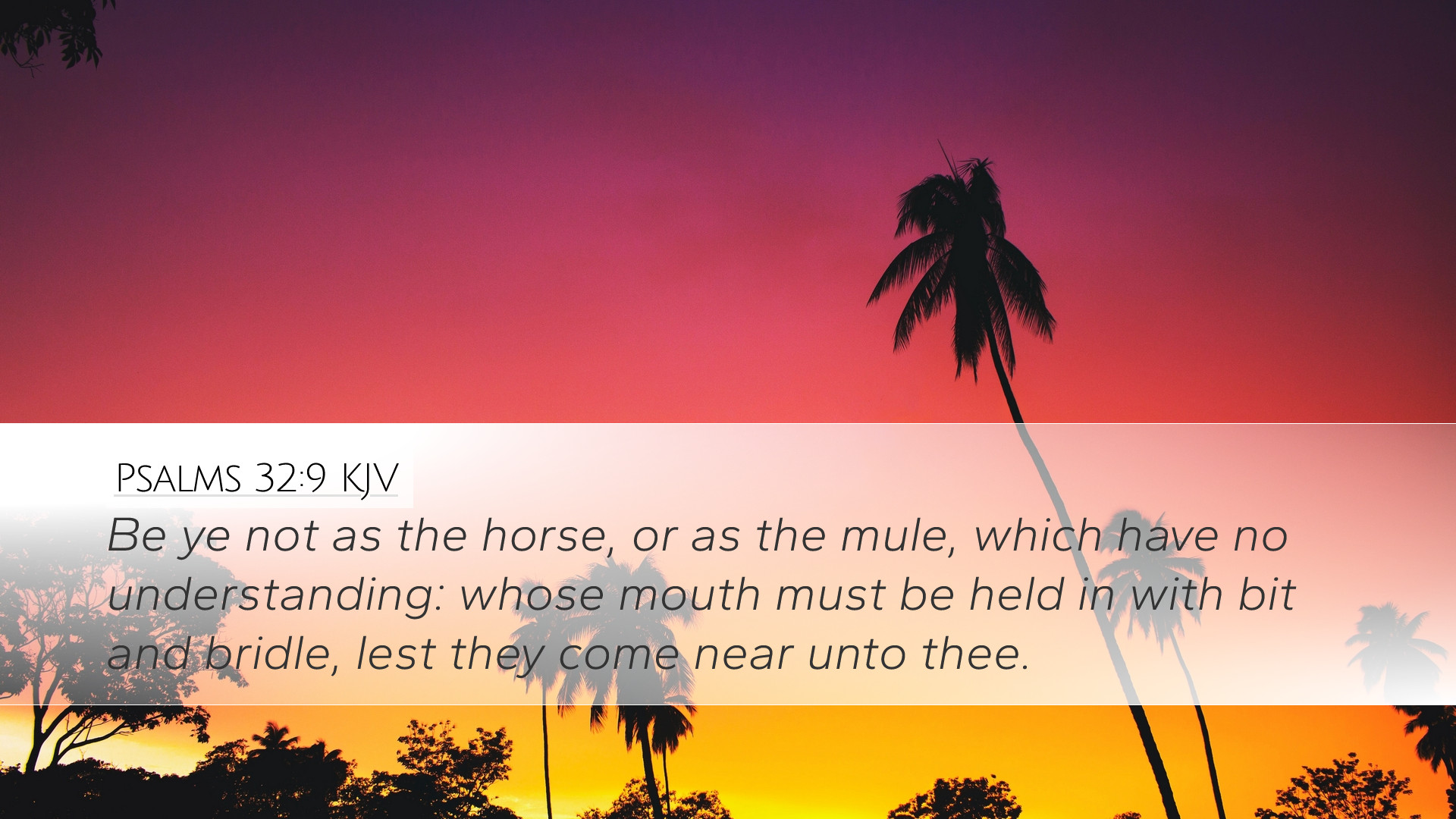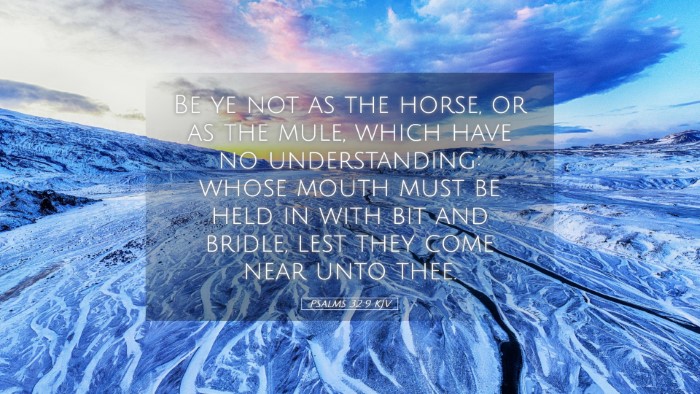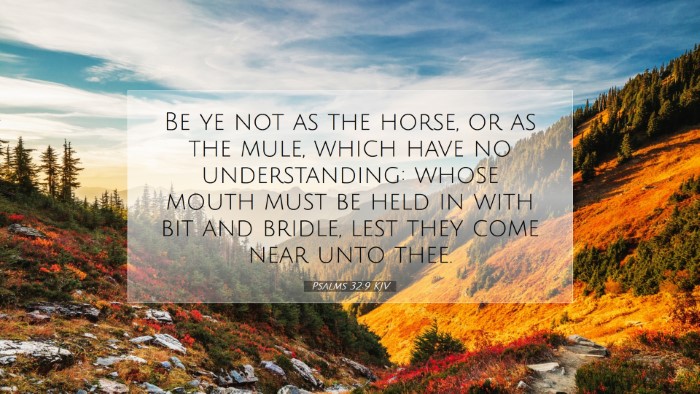Psalms 32:9 - Commentary Overview
Verse: "Be not as the horse, or as the mule, which have no understanding: whose mouth must be held in with bit and bridle, lest they come near unto thee."
Introduction
The verse from Psalms 32:9 offers profound wisdom regarding the nature of divine guidance and the human condition. In this commentary, we shall explore the insights of esteemed theologians including Matthew Henry, Albert Barnes, and Adam Clarke. They elucidate the importance of understanding, obedience, and the pitfalls of stubbornness in our relationship with God.
Contextual Analysis
Psalms 32 is attributed to David and is a penitential psalm reflecting on the joy of forgiveness and the counsel of God. In the surrounding verses, the psalmist outlines the blessing of sin forgiven and the significance of confession. Verse 9 serves as a poignant admonition contrasting the carefree life of animals with the expected understanding of mankind.
Understanding the Metaphor of Horses and Mules
The imagery here is striking. The horse and the mule are animals known for their strength but often lack discernment. Matthew Henry emphasizes that these creatures require external controls—a bit and bridle—signifying that they do not follow commands out of understanding but out of necessity. This metaphor serves as a call to believers to not exhibit the same lack of understanding.
Matthew Henry's Insights
Henry compares the animalistic traits of these creatures with human folly, stressing that those who lack wisdom and understanding must be coerced into action. He writes that true understanding comes from a heart attuned to God's voice. A life lived in ignorance or disobedience means one may require harsh measures for correction, which God wisely administers.
Albert Barnes' Perspective
Albert Barnes offers additional depth in exploring the idea that man should not be led or controlled like animals. He notes that God desires a voluntary obedience; thus, believers ought to seek His guidance earnestly. Barnes highlights that a wise person willingly submits to God’s will and reflects a heart receptive to divine instruction. He warns against the dangers of obstinacy and the consequences it bears in our spiritual lives.
Adam Clarke's Commentary
Adam Clarke emphasizes the necessity of understanding one's spiritual position. He asserts that the metaphor calls believers to recognize their nature and propensity towards sin. Clarke contends that just like the horse and mule, individuals can become stubborn, requiring God’s corrective measures, which could be unpleasant but ultimately beneficial for spiritual growth. His analysis leads to the notion that being “led” by God is a mark of maturity that reflects one’s understanding and love of divine law.
Theological Themes
- The call for understanding: The psalm urges believers to pursue knowledge and wisdom from God, leading to a life aligned with His will.
- Voluntary obedience: Unlike animals who must be coerced, true followers of Christ yield voluntarily to His commands. This illustrates the nature of genuine faith that seeks to understand rather than blindly obey.
- The consequences of disobedience: The text warns against the dangers of a stubborn heart, emphasizing that without understanding, believers risk being led by force rather than love.
Practical Applications
For pastors, students, theologians, and scholars, this verse serves as a warning and an instruction manual. The application of this scripture can be multifaceted:
- Fostering a teachable spirit: Encourage congregations and students to cultivate a heart that is eager to learn and receptive to God’s voice.
- Promoting Biblical literacy: Facilitate studies that delve into the Scriptures, promoting an understanding that fosters a deeper relationship with God.
- Assessing spiritual maturity: Leaders should encourage self-examination of one’s responsiveness to God’s guidance and a willingness to change when taught.
Conclusion
Psalms 32:9 poignantly exemplifies the essential call for believers to possess understanding in their walk with God. Through the insightful reflections of Matthew Henry, Albert Barnes, and Adam Clarke, the calls for an engaging, obedient, and educated spiritual life become ever more apparent. It reminds believers of the importance of cultivating a heart that seeks God earnestly, choosing to follow His leading rather than resisting it.
In a world where distractions abound, let this verse serve as a guiding principle towards a life of wisdom, understanding, and dedicated obedience to the Lord.


